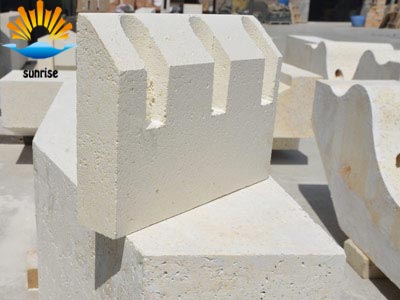
Product List
Success Case
Contact Us
- 0086 371 63838939
- 0086 371 63835539
- sales@sunriserefr.com
- tkfanyi
- No.36 Fengchan Road, Zhengzhou City

News
Refractory bricks can not be used after watering
- More related products
- Fused Cast AZS
- Fused Cast Alumina Block
- Fused Cast High Zirconia Block
- Fused Cast Skid Rail Block
The endogenous structure of refractory bricks has been doomed from the raw material-forming-baking, the quality of the material, the national standard and the non-national standard. China has different content standards in different types of refractory bricks, but in actual production. In the process, the national standard is accompanied by an acceptance standard. Most purchasing companies will purchase refractory bricks according to their own standards. The inner layer of refractory bricks is judged by its physical and chemical indicators. Service life, physical indicators, the most basic refractoriness, bulk density, load softening temperature, reburning line change, porosity, etc. The chemical index is determined by the composition of the material. For example, the silica-alumina material is mainly composed of AL2O3, alkali. The material is mainly MgO, and the acidic material is characterized by SiO2 as the main component or a hard index.
The length of service life of refractory bricks under high temperature kiln is closely related to many of its own factors or external factors. The refractory brick itself has a porosity, so the refractory brick is water absorbing and the water absorption rate is based on it. Depending on the size of the porosity, the pores are divided into three major categories: one side closed and the other side is connected to the outside, called an open pore, and the closed inside is called a closed pore, and the inside and the outside are called through pores. . The total porosity is the true pore ratio of the total volume of the pores in the sample as a percentage of the total volume of the sample: in general, the through pores are incorporated into the open pores, and the closed pores are small and difficult to measure directly. Therefore, the porosity is expressed by the open porosity, that is, the apparent porosity. The apparent porosity refers to the percentage of the total volume of open pores in the sample showing the total volume of the sample.
In the process of using refractory bricks, we often encounter some uncertain factors. For example, refractory bricks encounter rainy weather during construction, and the material is wet. In this case, strictly speaking, it is impossible to construct. After the refractory brick is wetted by the water, it must be used after the refractory brick itself is naturally dried, or according to the condition of the masonry furnace type. The porosity of the refractory bricks after water contact increases, and the infiltration of water causes an increase in its own weight. Some customers say that there is no oven after the kiln is built. This is a lucky feeling. The purpose of the oven is to make the lining of the masonry dry and reach a certain oven strength. When the wet refractory bricks are in the oven, a large amount of free water vapor will be diffused, so that the water vapor will increase the pores of the whole lining from various parts, not only lengthening the time of the oven, but also possibly After the oven, the free water in the refractory brick can not be completely drained, which causes the refractory brick which is infiltrated into the water to diffuse the water vapor again during the production process, thereby causing the stomata of the lining to increase or build up. The risk of loosening the body, the refractory brick itself is not afraid of water, but it is not recommended to use wet refractory bricks. Therefore, the materials should be kept in a safe place.

- Read more
Leave Message
For more information on any of our products please get in touch using the form below. One of our sales team will respond to your enquiry as soon as possible.

Copyright © 2014 Zhengzhou Sunrise Refractory Co., Ltd. 豫ICP备13002126号












